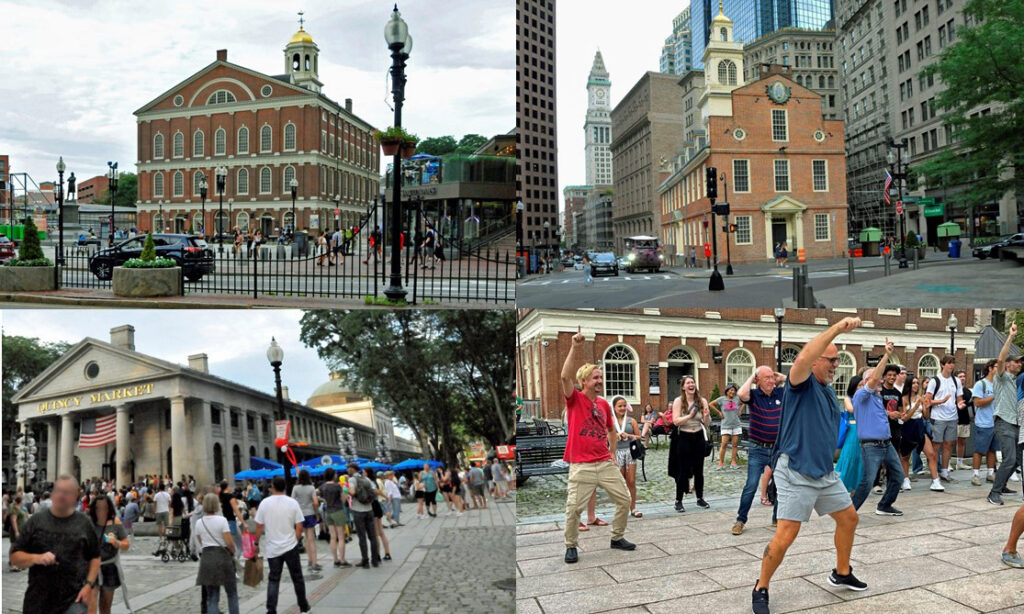Today, returning from Cape Cod, we visit Boston’s Old Town, so successfully combining the best of our past and present that I was induced to “dance” in public.
In 1630, Puritan settlers established Boston, named for an English coastal town, on an 800-acre peninsula extending into Massachusetts Bay. By 1710, Boston, capital of the Massachusetts Bay Colony, was the largest city in the 13 colonies, with a population of 9,000. In 1713, the Colony government constructed a brick building near the waterfront for meetings of the Massachusetts General Court. Now known as the “Old State House,” the brick structure replaced a building destroyed by fire. In 1742, Peter Faneuil, a wealthy Boston merchant and reputed slave trader, built a market house nearby, which he donated to the city. Despite its origins, Faneuil Hall became known as the “Cradle of Liberty” because Samuel Adams, James Otis and others made important speeches in the building supporting independence from England. In 1762, Otis made a speech in the Old State House that inflamed Bostonians against the English. On March 5, 1770, the Old State House was the site of the so-called “Boston Massacre,” in which British troops opened fire on an unruly crowd, killing five.
Today, the restored Old State House houses a museum. A cobblestone marker in front remembers the Boston Massacre. Nearby, Faneuil Hall, along with Quincy Market and two other markets, constitute Faneuil Hall Marketplace, one of the country’s earliest and most successful urban renewal projects. Since its opening in 1976, street performers have helped make the Marketplace area one of Boston’s most popular destinations, attracting 18 million visitors a year. When I was there, five multi-talented African American performers, looking for “seven rich white guys” to teach to dance, pointed to me. What followed was not really dancing, but it was a lot of fun.
